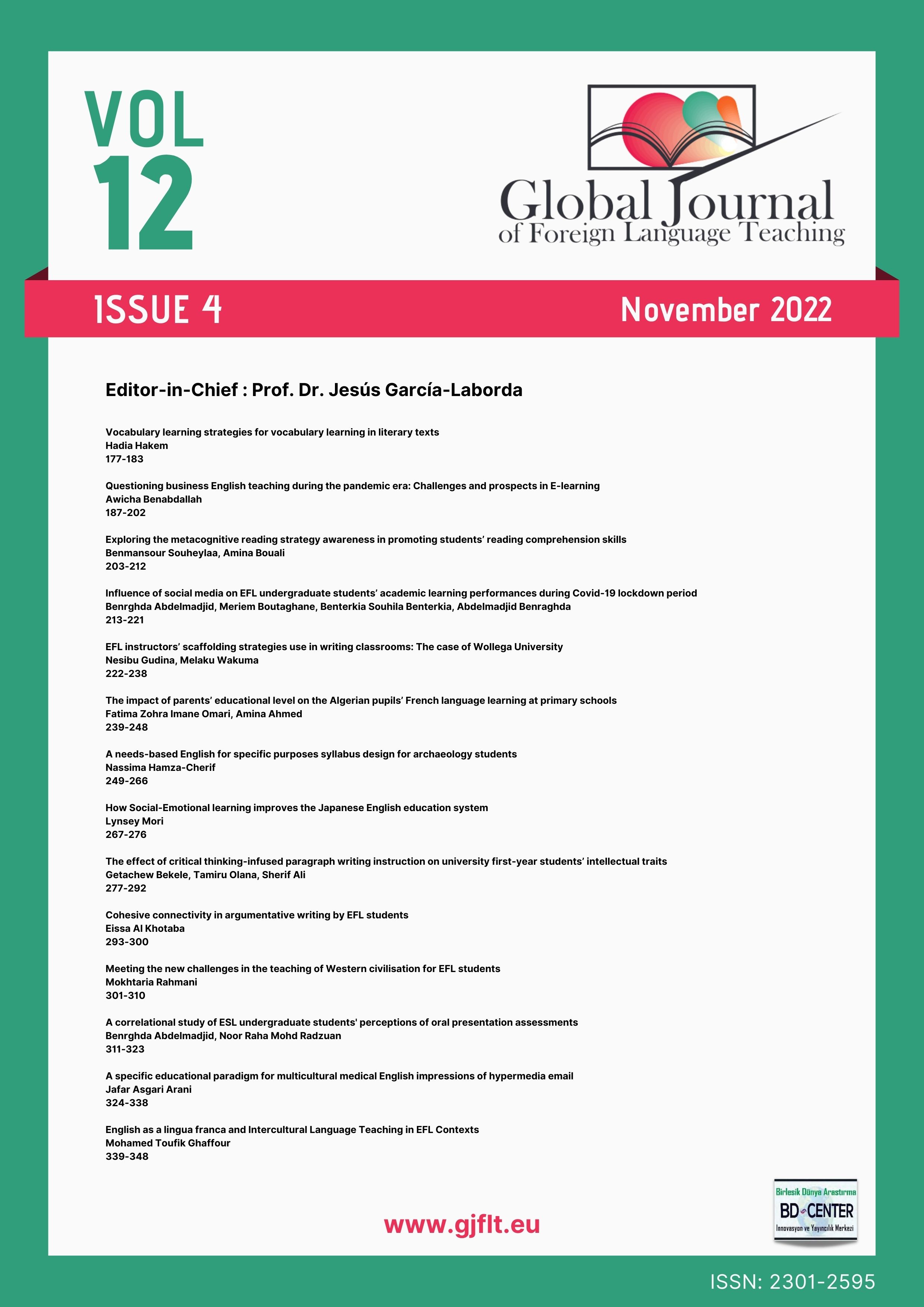Vocabulary learning strategies for vocabulary learning in literary texts
Main Article Content
Abstract
Literary texts are made up of lexis which enriches the beauty of scenes described or narrated. This makes them overloaded with vocabulary, sometimes, even daunting learners, particularly foreign language learners. Teachers of literature in an EFL classroom need to consider the difficulty of grasping large amounts of new words. To this end, it is necessary to teach the learners ways of learning vocabulary, by introducing vocabulary learning strategies to aid learners' grasp and retaining. This study aims to describe the application of Vocabulary Learning Strategy (VLS) in an EFL classroom and more precisely with a literary course. In this descriptive paper, a literature review on vocabulary learning strategies will be presented introducing their taxonomies and their importance in an EFL context. In addition, a framework for training learners to use these strategies will be described concerning a short story.
Keywords: literary texts; memory strategies; vocabulary; vocabulary learning strategies.
Downloads
Article Details

This work is licensed under a Creative Commons Attribution 4.0 International License.
Authors who publish with this journal agree to the following terms:- Authors retain copyright and grant the journal right of first publication with the work simultaneously licensed under a Creative Commons Attribution License that allows others to share the work with an acknowledgement of the work's authorship and initial publication in this journal.
- Authors are able to enter into separate, additional contractual arrangements for the non-exclusive distribution of the journal's published version of the work (e.g., post it to an institutional repository or publish it in a book), with an acknowledgement of its initial publication in this journal.
- Authors are permitted and encouraged to post their work online (e.g., in institutional repositories or on their website) prior to and during the submission process, as it can lead to productive exchanges, as well as earlier and greater citation of published work (SeeThe Effect of Open Access).
